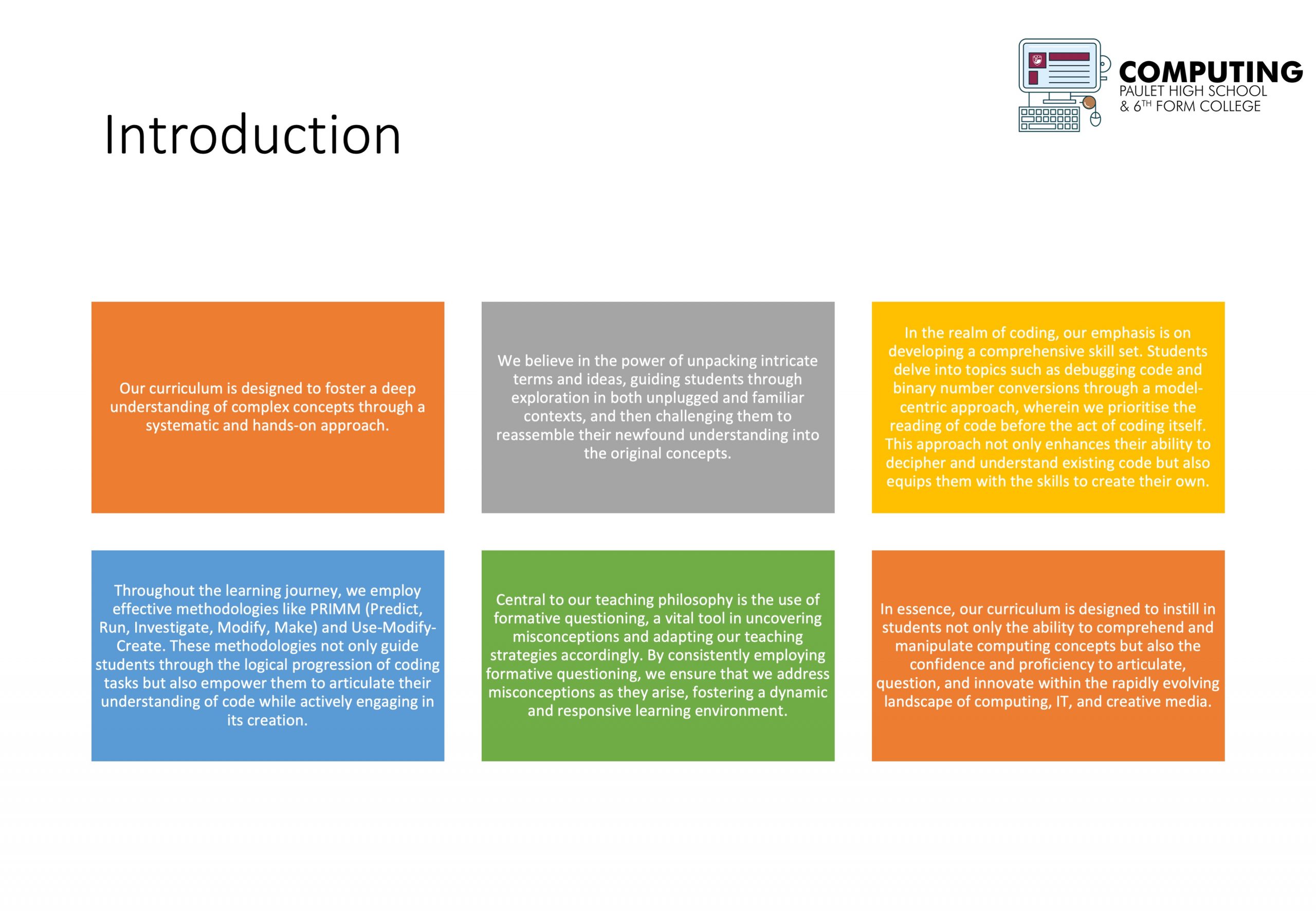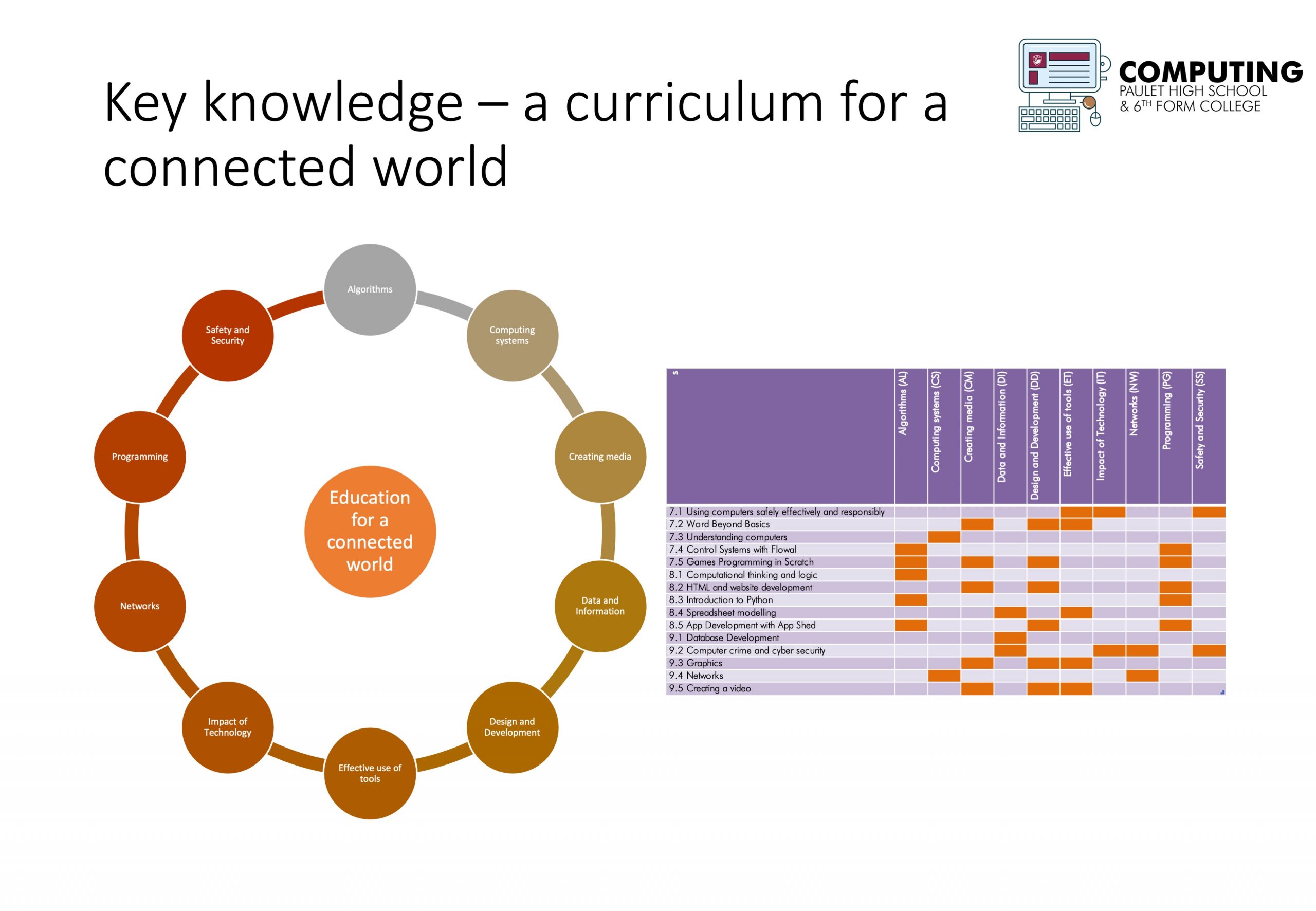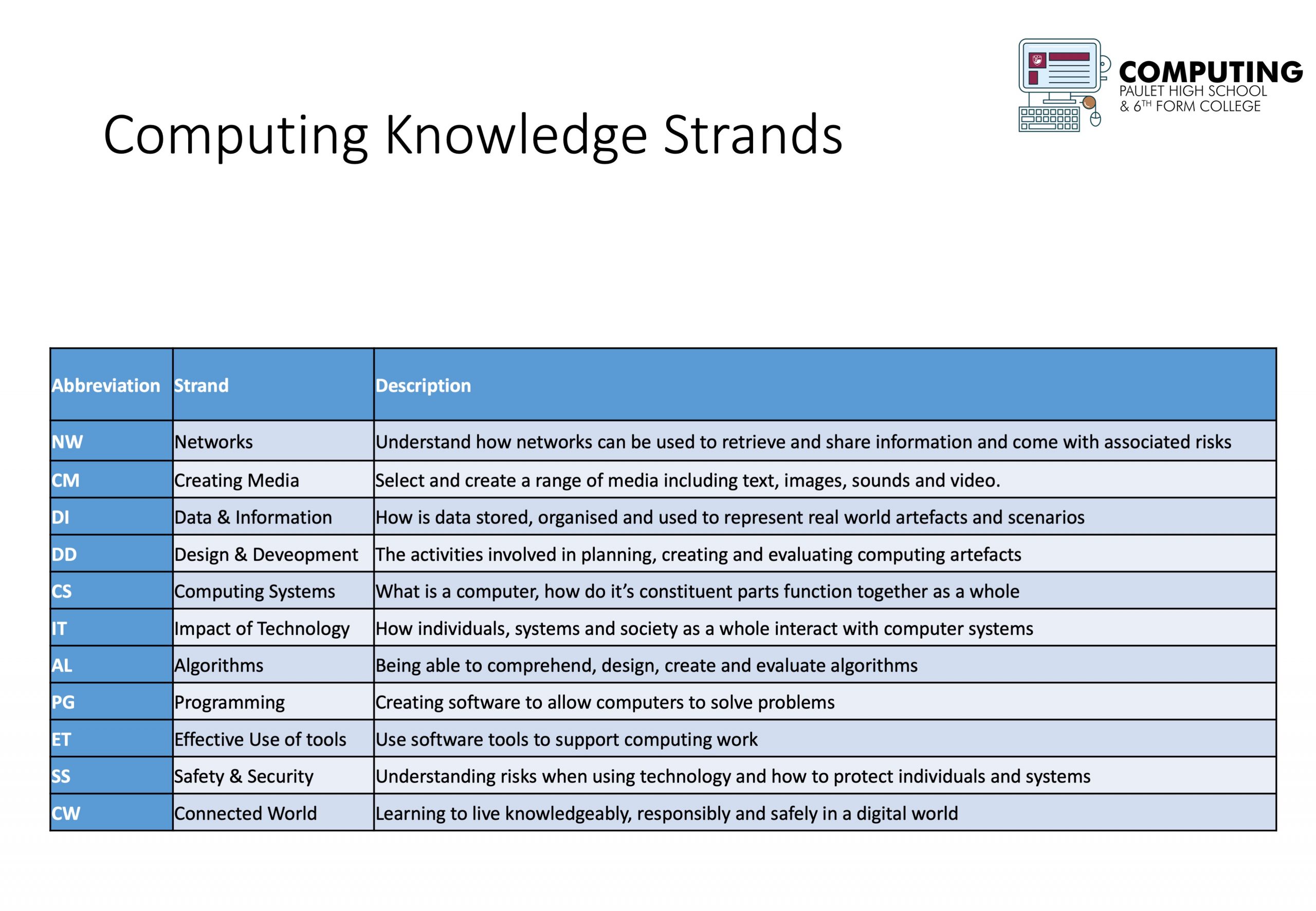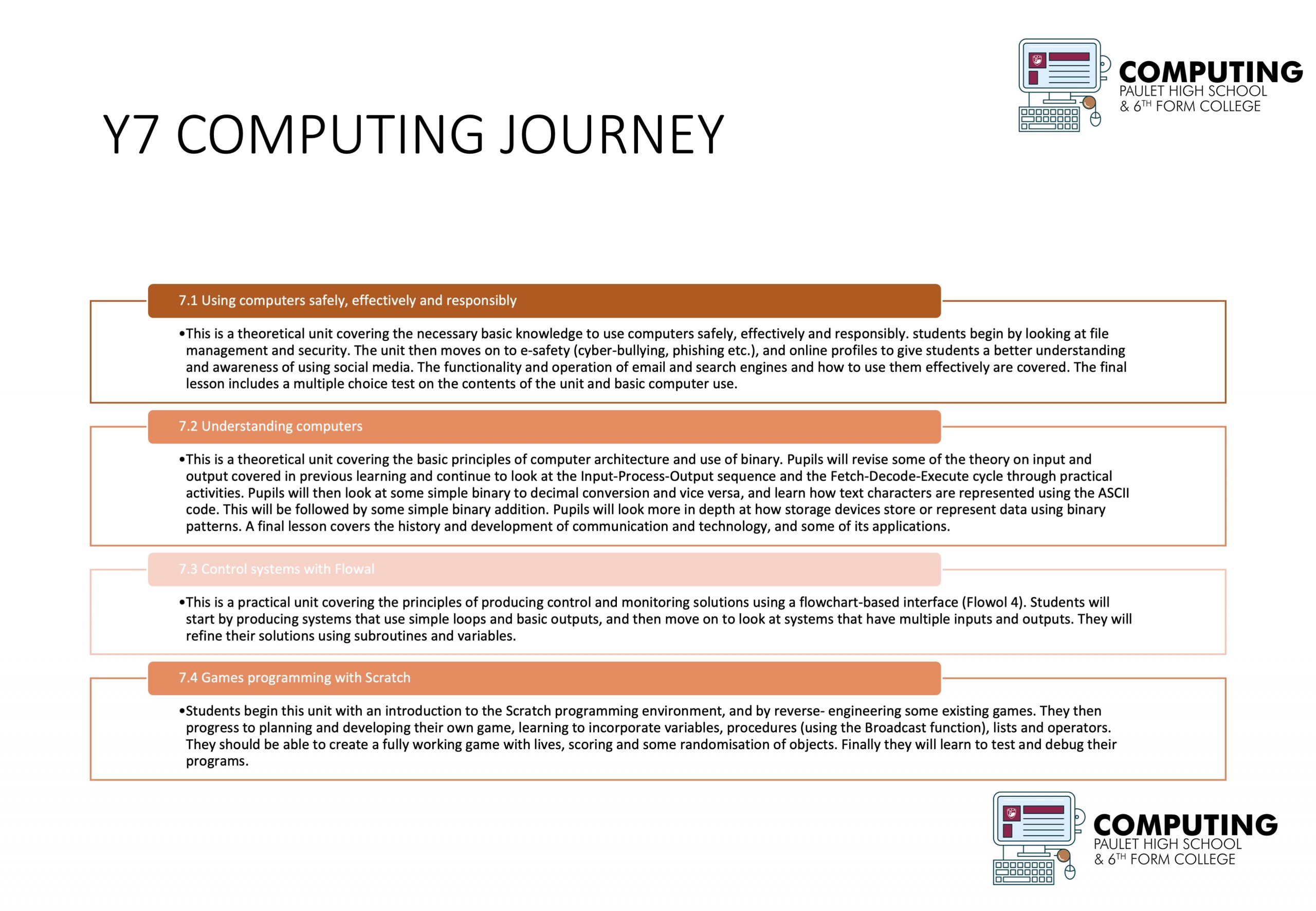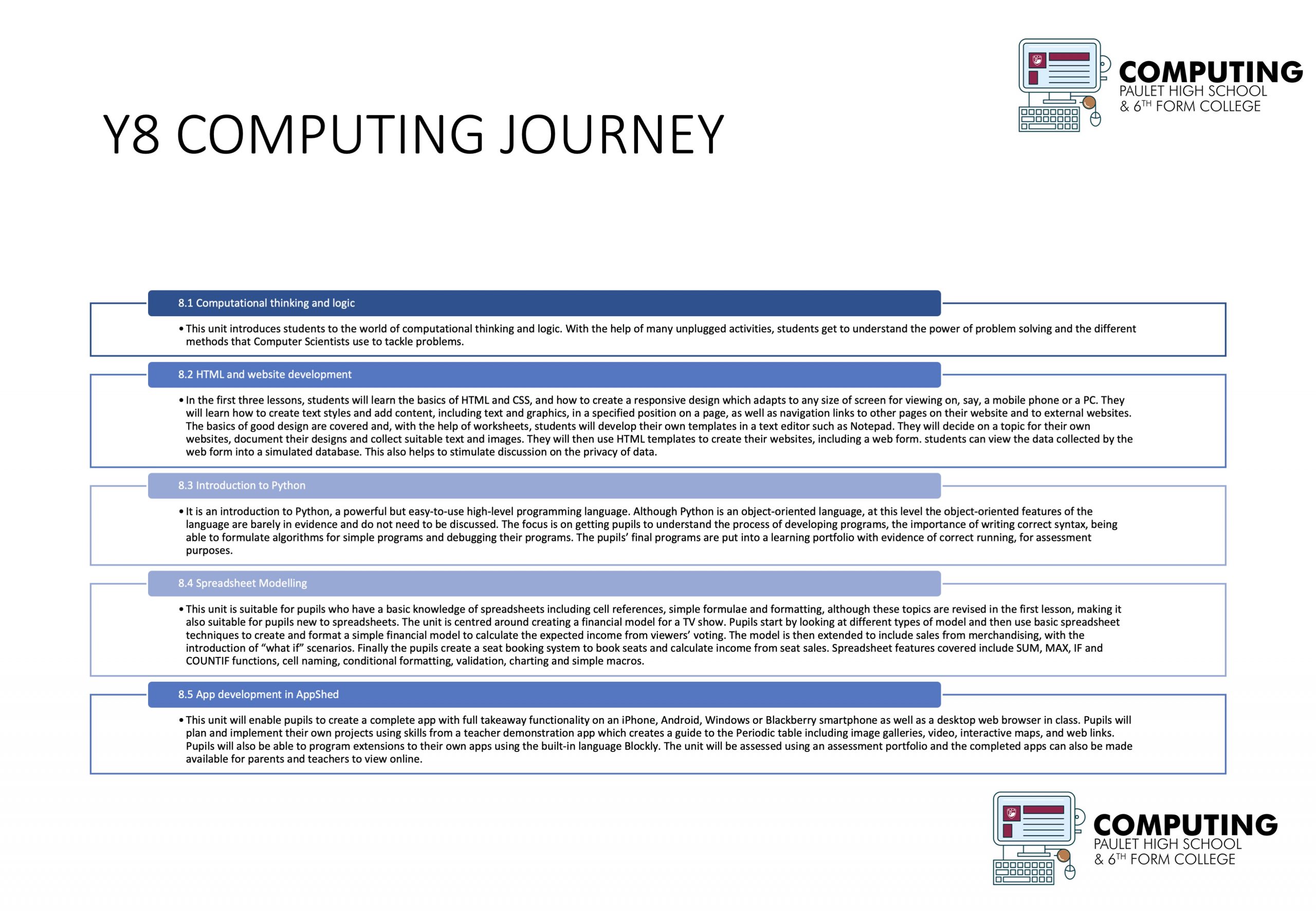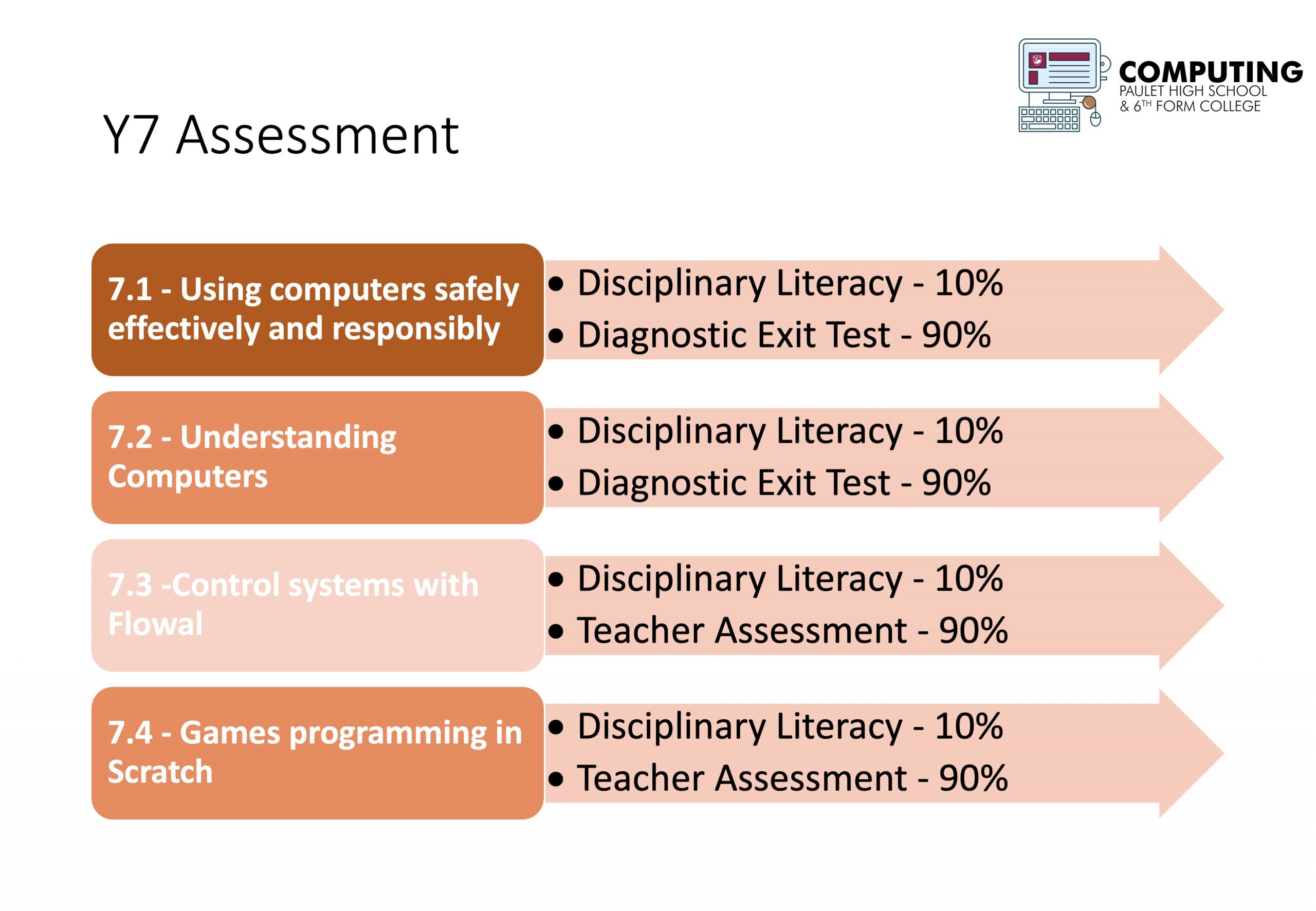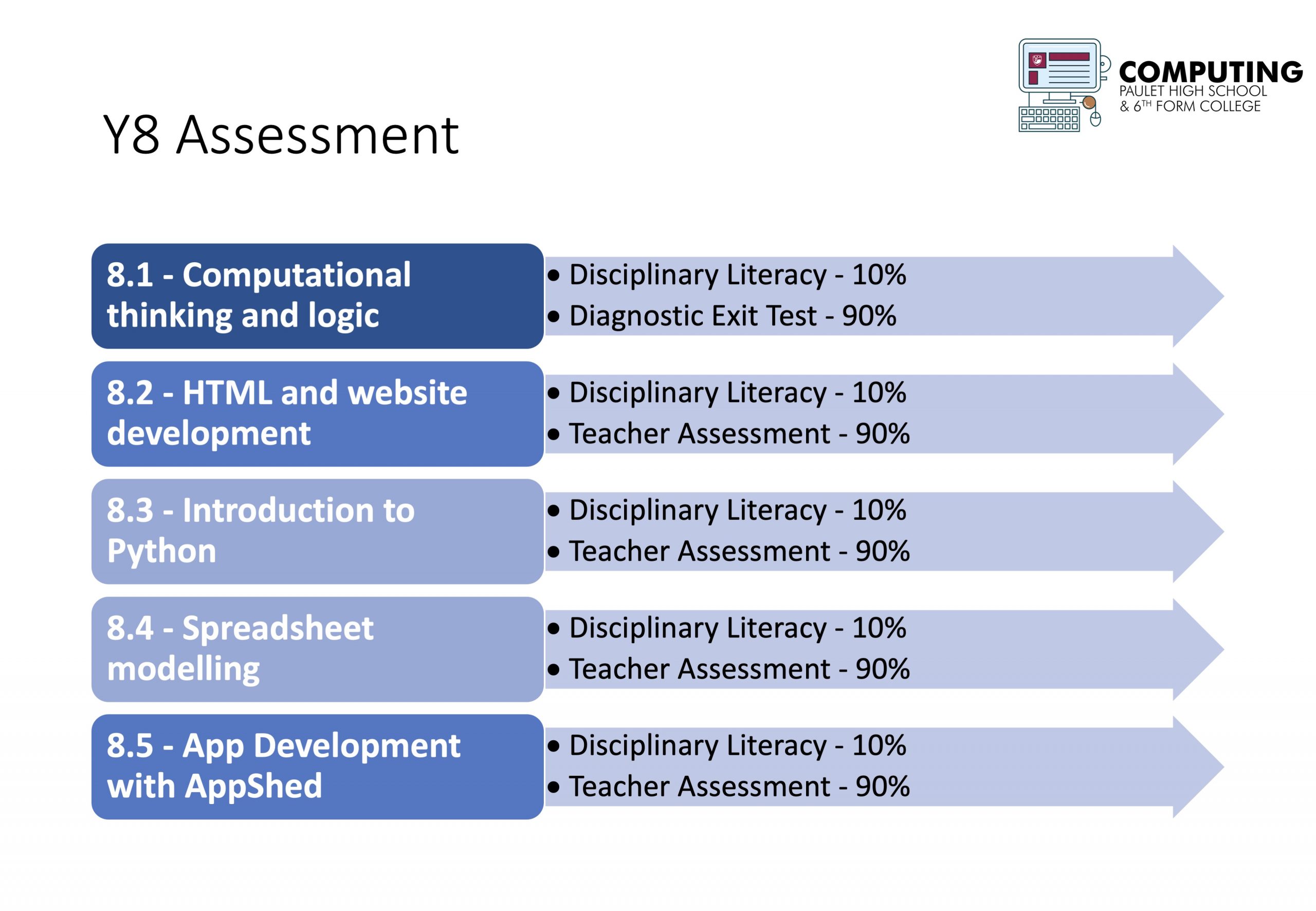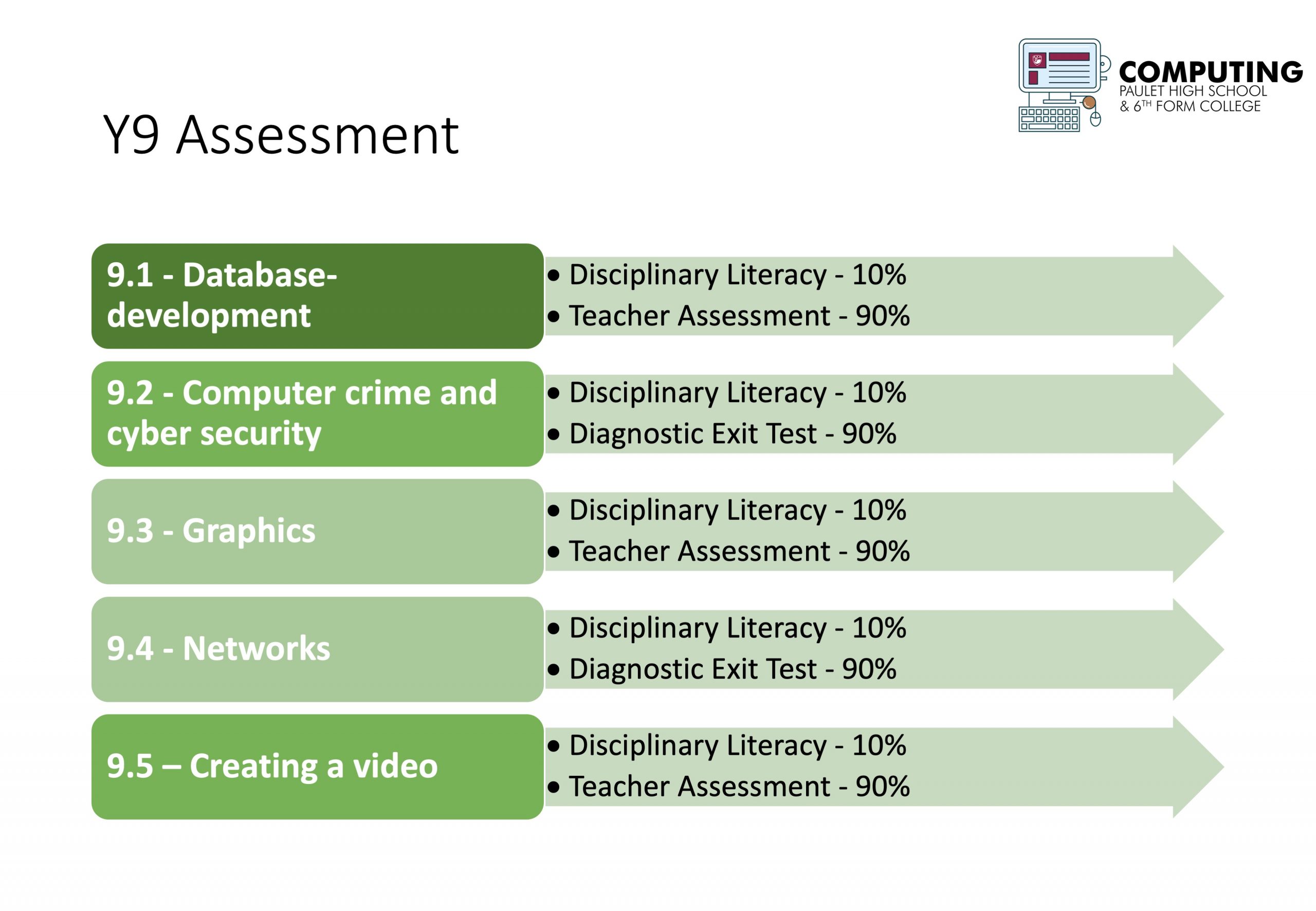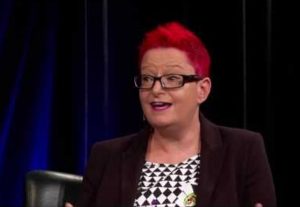Computing at Paulet
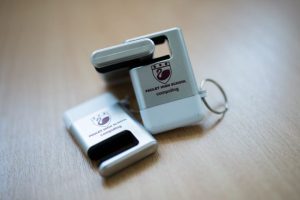
What do students learn in computing in Key Stage 3?
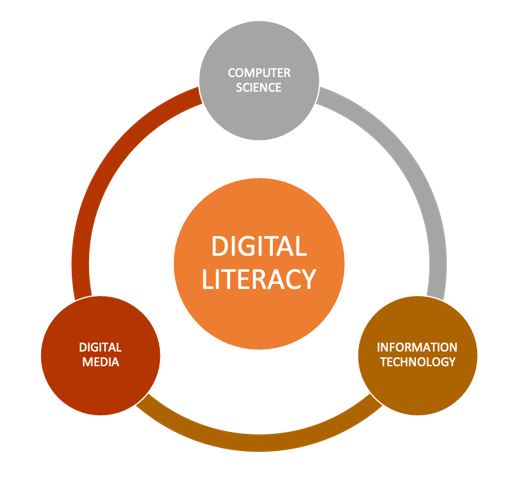
How do students learn in KS3 computing?
Students are taught new concepts by unpacking complex terms and ideas, exploring these ideas in unplugged and familiar context and repacking this new understanding in to the original concept. We model a lot in topics such as debugging code and binary number conversions. When learning to code we focus on reading code before writing code. We regularly use the PRIMM (predict, run, investigate, modify and make) and use-modify-create. This allows our student to be able to explain code and crucially write code. Questioning is fundamental to learning in computing and we use formative questioning to uncover misconceptions and adapt our teaching to address them as they appear.
What topics are covered and when in each year group? What is the sequence of teaching?
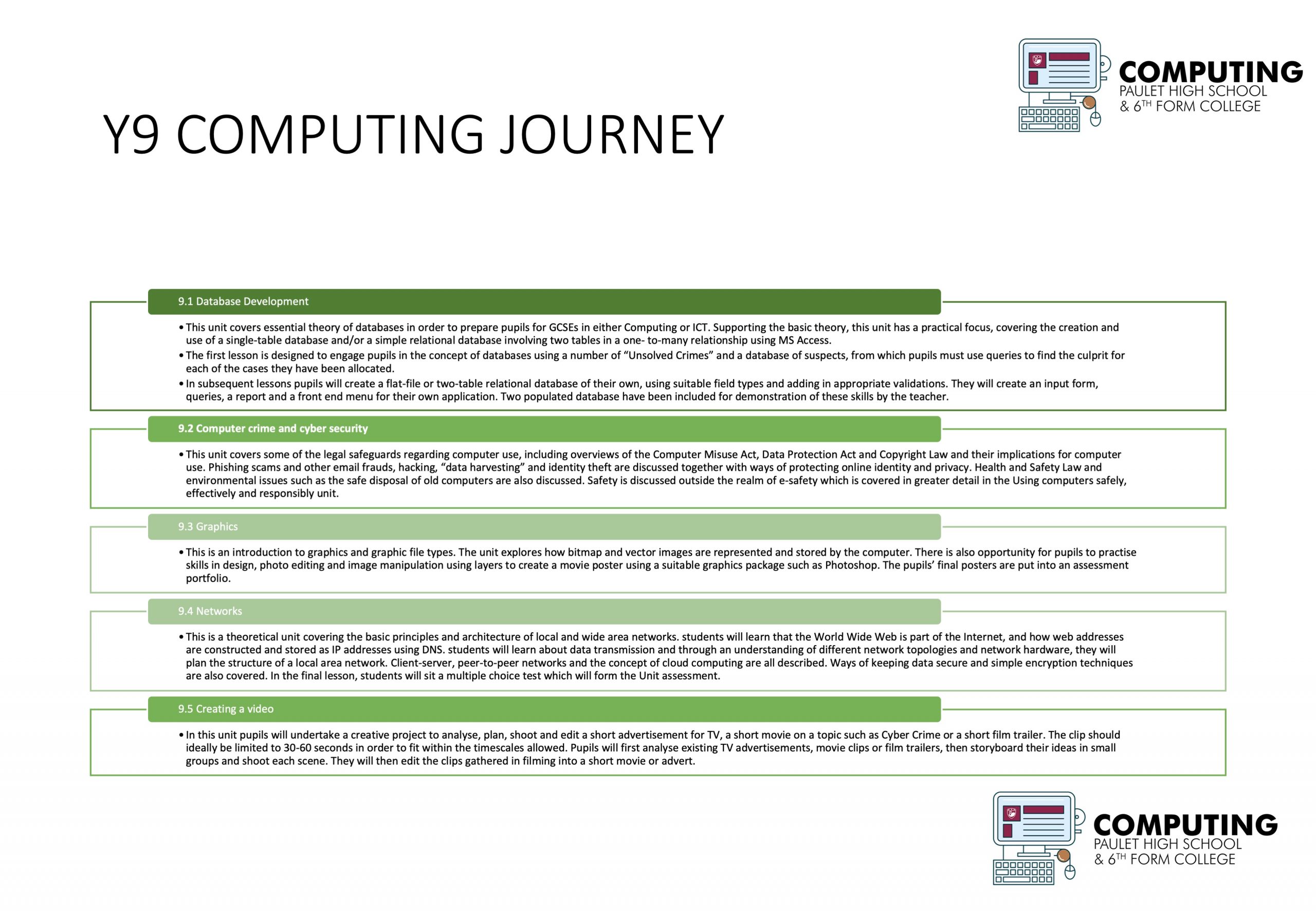 How are students assessed in KS3 Computing?
How are students assessed in KS3 Computing?
Students are assessed in computing lessons on their knowledge and skills in a variety of ways such as diagnostic assessments, self-assessments, portfolio and teacher assessment deepening on the unit being taught.
Home work is set every two weeks based on topics being taught in lessons.
Extra-curricular opportunities
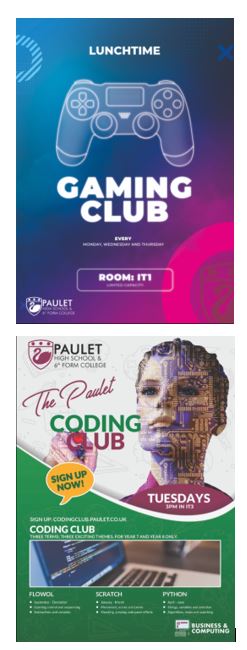
Careers
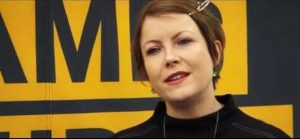
Jo Twist talks about the games industry (image in graphics folder) |
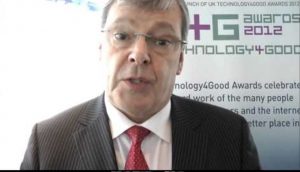
Michael Taylor talks about the use of technology for the good of all |
Sue Black talks about starting #techmums |
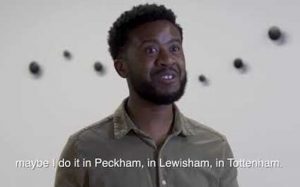
Andy Ayim talks about encouraging entrepreneurs from different backgrounds |
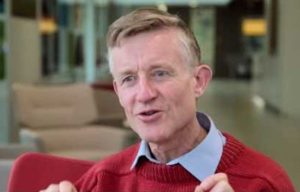
Simon Peyton-Jones talks about programming languages |
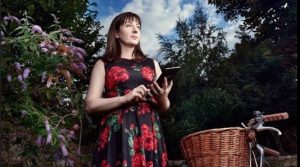
Catherine Breslin talks about machine learning and her career |

